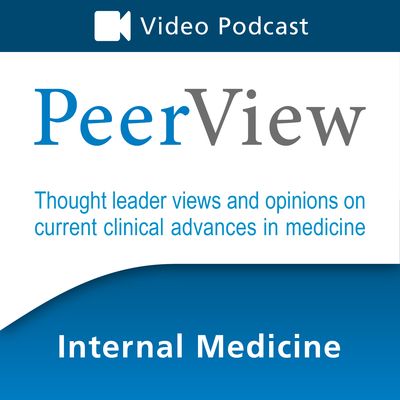PeerView (PVI) is a leading provider of high-quality, innovative continuing education (CME/CE/CPE and MOC) for clinicians and their interprofessional teams. Combining evidence-based medicine and instructional expertise, PeerView activities improve the knowledge, skills, and strategies that support clinical performance and patient outcomes. PeerView makes its educational programming and expert-led presentations and symposia available through its network of popular podcast channels to support specific specialties and conditions. Each episode includes a link to request CME/CE credit for participation. PeerView is solely responsible for the selection of topics, the preparation of editorial content, and the distribution of all materials it publishes.
http://ww2.peerview.com
Mike Janicek, MD / Bradley J. Monk, MD, FACS, FACOG - Targeting Pathogenic Mutations in the DNA Damage Response Pathway: Genetic Testing and Counseling in the Era of Precision Medicine and Next-Generation Sequencing
Go online to PeerView.com/XUK860 to view the activity, download slides and practice aids, and complete the post-test to earn credit. Exploiting the impact of mutations in DNA damage response (DDR) pathways on tumorigenesis has led to advances in the development of targeted therapies such as poly-ADP ribose polymerase (PARP) inhibitors for patients with relevant cancers. These agents are currently approved for several indications and are under investigation in a number of other tumor types. Increasingly, optimal care for patients with breast, ovarian, pancreatic, and other cancers must include genetic and other biomarker testing to inform risk, prognosis, and treatment selection. This PeerView inExchange features two leading experts who share the fundamentals of DDR pathway biology and their insights into current and emerging biomarkers, genetic testing guidelines, indications, and mechanisms, as well as the latest evidence on PARP inhibitors and other novel therapeutic approaches. The experts also provide guidance on how to incorporate molecular testing into current clinical practice to ensure that patients who have or are at risk for DDR-mutant cancers receive optimal care. Upon completion of this activity, participants should be better able to: Discuss key features of the DNA damage response (DDR) pathway and the rationale for therapeutic targeting of DDR mutations in patients with cancer, Compare current and emerging actionable mutations associated with DDR (eg, BRCA1/2) and the different testing methods used to identify these biomarkers, Evaluate recent clinical evidence on current and emerging agents and combinations targeting DNA repair mechanisms, including poly-ADP ribose polymerase (PARP) inhibitors, Describe the guidelines for genetic risk evaluation, genetic testing procedures, and pre- and post-test counseling for patients who may be at risk for a germline mutation in the DDR pathway, Apply guideline-based recommendations to identify patients who should receive genetic testing, provide effective genetic counseling, and tailor biomarker testing options to the individual patient’s needs.
